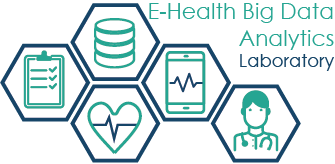EHealth services and technologies generate enormous amounts of data and information which, for their processing, require the use of non-traditional methodologies and technologies: Cloud Computing, Internet of Things and Big Data and Analytics are the new paradigms founding the new generation of information management systems in eHealth.
The data sources to be considered, in addition to having a high volume, are also heterogeneous due to their different type and origin. Typically, such data are collected and stored in heterogeneous forms and are rarely reused in an aggregate manner.
The speed with which information is produced and saved, together with the aforementioned volume and variety, require systems and tools to collect, manage, and analyze data and all the information produced by healthcare systems, directing this research towards methods and techniques typical of Big Data Analytics (BDA).
The BDA in eHealth enables the transformation of a classic analysis of hypothesis-driven information to an innovative one of the data-driven type, capable of identifying non-trivial connections between heterogeneous data and information. This requires the need to investigate:
- new cloud-based architectures that allow the timely processing of information, from the Hadoop to the Spark Ecosystem;
- new information management systems that integrate relational (SQL), non-relational (NoSQL) and new relational (newSQL) architectures;
- use of descriptive, diagnostic, predictive, and prescriptive analysis techniques;
- use of Data Mining tools and techniques on Massive Data Sets, which include Deep Learning based systems.
In this context, digital infrastructures are equally important for the circulation of data and the interconnection of devices, following the paradigm of the Internet of Things.





